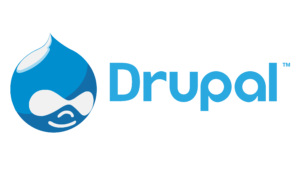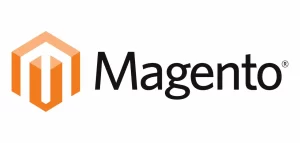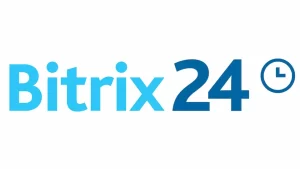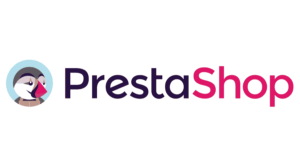Discover the latest trends and features as we delve into an in-depth exploration of the top-rated and widely-used Content Management System (CMS) platforms that are shaping the digital landscape in 2024.

In the dynamic realm of Web Development, Content Management Systems (CMS) play a pivotal role in simplifying the creation and management of digital content. But what exactly defines a CMS platform, and why is it indispensable in today’s online landscape?
A Content Management System, abbreviated as CMS, is a software application that empowers users to create, edit, organize, and publish digital content on the web without the need for extensive technical expertise. Serving as a virtual workspace, it provides an intuitive interface for managing text, images, videos, and other multimedia elements.
A CMS platform streamlines the creation, modification, and organization of digital content without requiring extensive coding knowledge. It simplifies website maintenance, allowing for easy updates and modifications. Explore features such as user-friendly interfaces, customizable themes, and plugin ecosystems that empower individuals and businesses to establish and maintain an online presence efficiently.

WordPress.org stands tall as the Best CMS Platform, holding the title of the world’s Most Popular CMS software, powering around 43% of all websites on the internet.
Overview: WordPress continues to dominate the CMS landscape, offering versatility and scalability for various websites, from blogs to e-commerce. It is undeniably one of the most popular CMS platforms.
Features: Intuitive interface, extensive plugin ecosystem, SEO-friendly, and customizable themes.
Usage: Ideal for beginners, bloggers, and businesses of all sizes.

Drupal, another open-source CMS platform, is the force behind major websites like The Economist site and several university sites.
Overview: Known for its flexibility and scalability, Drupal is a powerful open-source CMS catering to diverse web development requirements.
Features: Robust security, advanced content modeling, and a thriving community for support and extensions.
Usage: Suited for large-scale websites, corporate platforms, and applications with complex functionalities.

Joomla, a popular free open-source CMS platform with various templates and extensions, strikes a balance between simplicity and advanced features.
Overview: Joomla strikes a balance between simplicity and advanced features, making it suitable for a wide range of websites.
Features: User-friendly admin interface, strong multilingual support, and a plethora of extensions.
Usage: Recommended for small to medium-sized businesses, online magazines, and community websites.

Shopify, an All-in-one hosted CMS platform, excels in simplifying the setup and management of online stores.
Overview: Specializing in e-commerce, Shopify simplifies the process of setting up and managing online stores.
Features: Easy product management, secure transactions, and a variety of templates for customization.
Usage: Ideal for businesses focused on selling products online, from startups to established brands.

Ghost, specifically designed for bloggers, operates as a “headless CMS,” offering flexibility in content delivery.
Overview: Ghost is a CMS platform specifically designed for bloggers.
Features: Ghost offers built-in SEO support that helps align text according to ranking algorithms.
Usage: Well-suited for charging for content, making it ideal for online magazines or publications with subscription models.

Magento, a powerful open-source eCommerce platform from Adobe, facilitates the handling of extensive product catalogs and customer interactions.
Overview: Magento is a powerful open-source eCommerce platform from the huge software company Adobe.
Features: Handles numerous products and customers, supporting business growth without compromising site performance.
Usage: Connect different payment gateways and adapt to various payment options.

Textpattern, a simple and straightforward CMS platform since 2003, offers flexibility in content structuring.
Overview: Textpattern is a simple, straightforward CMS platform available since 2003.
Features: Flexible content structuring with “sections” and “categories,” along with a variety of free modifications and templates.
Usage: Numerous Textpattern modifications, plugins, and templates available for free.

Blogger, in existence since 1999, is a CMS platform tailored for blogging, provided as a free service by Google.
Overview: Blogger is a CMS platform specifically geared for blogging, offered as a free service by Google.
Features: Various gadgets for blog customization, including contact forms and ads, all hosted by Google.
Usage: No need for installations or hosting payments, making it hassle-free for bloggers.

Bitrix24, a business tool with a CMS platform, offers a comprehensive solution for managing tasks, projects, communications, and customer relationships.
Overview: Bitrix24 is a business tool that offers a CMS platform alongside other features.
Features: Free basic level with 5GB of online storage and 12 user accounts, ideal for small businesses.
Usage: A plethora of features for managing small to medium-sized companies.

PrestaShop, an open-source e-commerce CMS platform, allows self-hosting, providing scalability as your shop grows.
Overview: PrestaShop is an open-source eCommerce CMS platform for self-hosting.
Features: A large community offering tips and tutorials, supporting growth without additional costs.
Usage: No extra charges as your shop expands, making it a cost-effective choice.
Determining the Best CMS depends on specific needs. WordPress, with its versatility, remains the most popular CMS platform, while Drupal excels in scalability and complexity.
WordPress continues to dominate, being widely used for its user-friendly interface and extensive plugin ecosystem. It is considered the Which CMS will be widely used in 2023?
WordPress maintains its status as the most popular CMS due to its adaptability, ease of use, and vast community support.
Common CMS software includes WordPress, Drupal, Joomla, and specialized platforms like Shopify for e-commerce. Each serves distinct web development needs.